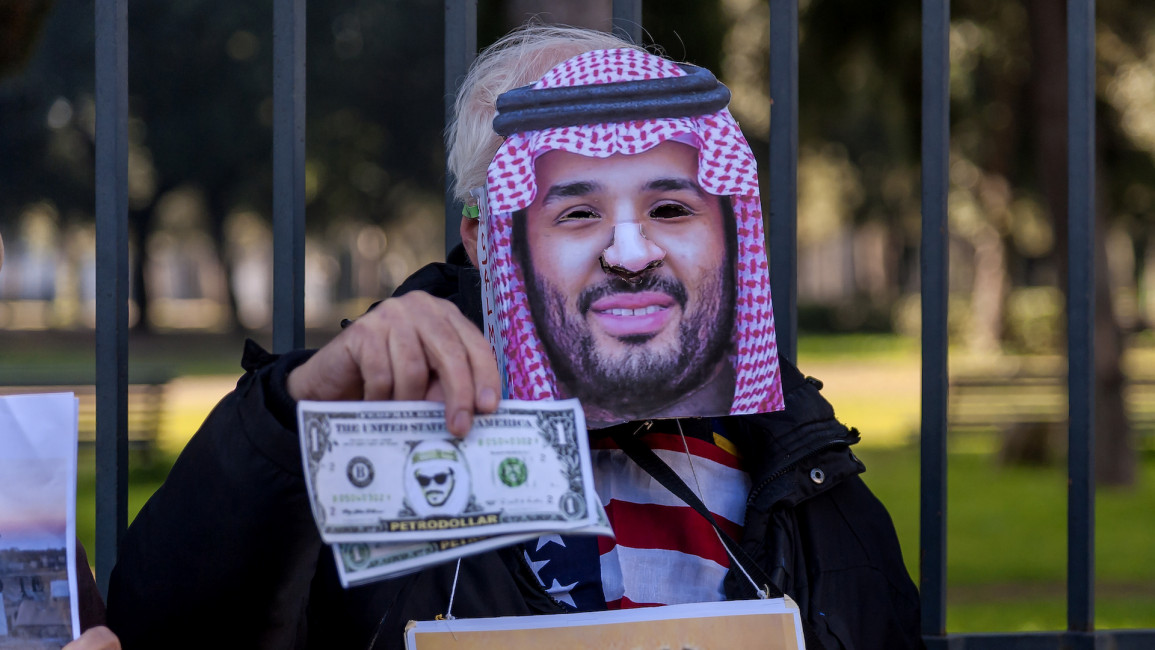Saudi political detainees go on hunger strike to protest 'inhumane imprisonment'
Saudi prisoners of conscience led by imprisoned prominent human rights activist Dr. Abdullah al-Hamid, have declared a hunger strike to protest their unjust detention for merely calling for reform.
Hamid, who has been in prison since March 2013, said he would go on an open-ended hunger strike to pressure the Saudi regime to release all peaceful pro-democracy activists and human rights defenders detained arbitrarily, in a statement leaked from behind bars and posted Sunday on Twitter by the Prisoners of Conscience, a Saudi rights group.
Hamid is co-founder of the Saudi Civil and Political Rights Association (ACPRA), which is known in Arabic by its acronym HASEM.
Prisoners of Conscience said other detainees, including another HASEM co-founder Mohammad al-Qahtani, will be joining the hunger strike.
The New Arab has not yet independently verified the reports, but prominent Saudi activists such as Dr. Abdullah al-Odah, son of detained prominent Saudi cleric Dr. Salman al-Odah, has accepted their veracity.
|
"Reports of Abdullah al-Hamid’s hunger strike are a reminder that even before Mohammad bin Salman unleashed his crackdown on Saudi society there were already activists and unjustly sentenced to long prison terms following unfair trials," Adam Coogle, Middle East researcher with Human Rights, told The New Arab.
"Saudi Arabia should immediately release al-Hamid and the scores of other Saudi activists languishing in Saudi prisons," he added.
The New Arab has reached out to the Saudi embassy in London for comment but has not received a reply by the time of publication.
Hamid and Qahtani were sentenced by Saudi authorities in March 2013 to 10 and 11 years respectively for "providing inaccurate information to foreign media, founding and operating an unlicensed human rights organisation, as well as other offenses".
Last year, the two men along a number of other Saudi activists were awarded the alternative Nobel Prize by the Sweden-based Right Livelihood Award Foundation "for their visionary and courageous efforts ... to reform the totalitarian political system in Saudi Arabia."
|
The Right Livelihood Award honours efforts that prize founder Jacob von Uexkull felt were being ignored by the official Nobel prize committee.
Since the rise of crown prince Mohammed bin Salman, the Saudi regime's crackdown on activists has expanded to unprecedented levels.
Dozens of rights activists, including women who had called for an end on the ban on women driving that MbS later took credit for, have been rounded up amid reports they are being tortured and sexually assaulted.
In 2017, the crown prince presided over a sweeping 'anti-corruption' crackdown, detaining dozens of royal family rivals, businessmen and clerics. Many were later released after agreeing to pay sums of money and pledging allegiance to bin Salman's rule.
Follow Karim Traboulsi on Twitter @kareemios


![Hundreds demonstrate against the White House Correspondents' Dinner in support of Gazan journalists. [Brooke Anderson/TNA]](/sites/default/files/styles/image_212x120/public/2024-04/5cde0bce-4652-4e28-a001-f06b9b8f8e28.jpg?h=ddb1ad0c&itok=KpFyfV2a)
